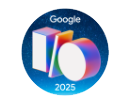
Artificial intelligence (AI) is revolutionizing online marketing, including search engine optimization (SEO). The rise of machine learning, natural language processing (NLP), and predictive analytics is opening up new opportunities to improve website visibility. The development of algorithms and automation capabilities are enabling not only faster but also more accurate analyses, more targeted content strategies, and increasingly intelligent optimization processes. The aim of this article is to provide a detailed overview of how AI is changing the search engine optimization some of its areas, what benefits and dangers it entails, and how to prepare for these changes.

Artificial intelligence in Google's algorithms
Google started using it in 2015. artificial intelligence in its search algorithms. The goal is for the search engine to understand not only keywords, but also search intent, context, and relationships.
- RankBrain (2015): One of the first applications of machine learning at Google, RankBrain is able to modify the order of search results based on user behavior, helping to display more relevant answers.
- BERT (2019): A natural language processing model that can recognize relationships between words and the context of entire queries. It has significantly improved the understanding of longer, spoken language queries.
- MUM (2021): A multimodal model that understands not only text but also images and other content types, and handles multiple languages. It can perform multiple tasks as a single model, thus offering even more relevant results.
Interesting fact: THE Google According to the BERT model, the introduction of the model has already brought a noticeable improvement in interpretation in 1 out of 1 searches. (source)

AI content production and Google's position
AI-powered copywriters like ChatGPT, Jasper, Copy.ai, and Claude have made it possible to produce content that used to take a lot of time in minutes. These tools can generate website copy, blog posts, product descriptions, metadata, and even creative writing.
According to Google's official 2023 statement, artificial intelligence-generated content does not automatically violate Google's policies, provided that it:
- complies with quality content guidelines,
- useful and informative,
- not for manipulation purposes,
- corresponds to EEAT principles (Experience, Expertise, Authoritativeness, Trustworthiness).
Statistics: According to a 2024 HubSpot survey, 721% of marketers are already using some form of AI content generation, mainly for creating blog posts, social media posts, and meta descriptions. (source)

Keyword research, trend monitoring and predictive SEO
One of the most visible applications of artificial intelligence is search trends and keywords analysis, and prediction of future behavior.
- Predictive SEO: AI is capable of large amounts of search data to process it, based on which you can make predictions about keywords that will become popular in the future. This can be especially important in cases of seasonal trends or rapidly changing markets.
- Competitor analysis: With AI-based tools, you can quickly see what keywords your competitors are optimizing for, what content strategy they are using, and where there are gaps that can be exploited.
Example: Semrush's predictive keyword tool can predict whether a given keyword is trending up or down based on search patterns from the past 12 months, allowing you to stay one step ahead of your competition.

Automating technical SEO with artificial intelligence
AI technologies are not only used in content creation, but also in technical SEO can also be used in the field of. The automated audit devices are now able to:
- to map broken links,
- make suggestions for optimizing the robots.txt and sitemap files,
- analyze page speed and recommend improvements,
- check the existence and correctness of structured data,
- generate alternative text (ALT tag) for images,
- to test mobile-friendly operation.
Interesting fact: According to an experiment, an AI-powered website audit found up to 30% more technical errors than a manual one SEO during audit. (Screaming Frog Lab test, 2023)

Dangers and ethical challenges
Although artificial intelligence has many benefits, the risks should not be ignored:
- Content duplication: AI often uses templated or repetitive structures, which can reduce value in the eyes of search engines.
- Misinformation: AI systems may generate inaccurate or fabricated data (e.g., non-existent links).
- Ethical issues: The question of the veracity of the content arises, especially in medical, financial or legal topics, where it can be dangerous without an expert background AI-generated content to publish.
- “AI spam”: Automated, quality-free mass content, the purpose of which is not to provide information, but to manipulate search engines.
Tip: Before publishing AI-generated text, always edit it, check references, and supplement it with human expertise – this way you can ensure quality and reader trust.

Human-machine collaboration – The SEO of the future
The search engine optimization of the future is not based on the exclusive dominance of machines or humans, but on the synergy of the two. The most effective strategies:
- using AI for ideation, data analysis, and generating first versions,
- applying human expertise to editing, fine-tuning, styling,
- continuous testing and A/B tests for the best results.
Practical example: A B2B blog campaign used AI to speed up content creation, but all content was reviewed and optimized by a marketing editor. The result: 38% more organic traffic Within 3 months.

THE Artificial intelligence has opened a new dimension in search engine optimization. It can help you produce content faster, more accurately, and more proactively, fix technical errors, and make strategic decisions. However, AI is not a substitute for human knowledge, creativity, and ethical judgment. A successful SEO strategy is based on a balance between the two worlds – human and machine.
Referenced sources:
- Google Search Central Blog: https://developers.google.com/search/blog
- Search Engine Journal: https://www.searchenginejournal.com/
- Moz Blog: https://moz.com/blog
- Search Engine Land: https://searchengineland.com
- Ahrefs Blog: https://ahrefs.com/blog
- SEMrush Trends: https://www.semrush.com/trends/
- Screaming Frog Lab Test: https://www.screamingfrog.co.uk/seo-spider/
- HubSpot Research: https://blog.hubspot.com/marketing/ai-marketing-statistics
- SEO Hungary Blog: https://seohun.hu/hu_hu/blog/





